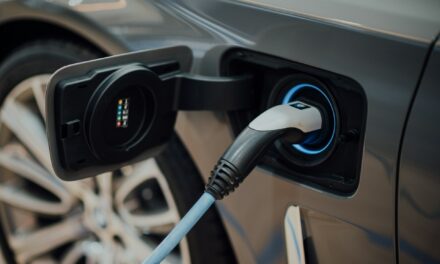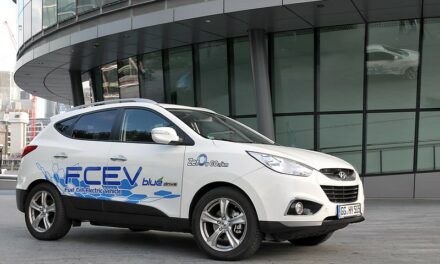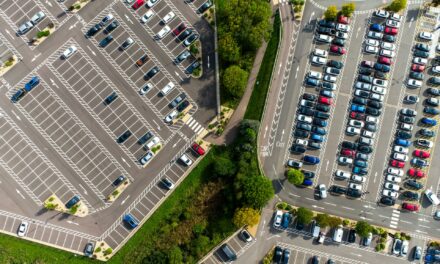The clock is ticking for petrol cars as 2030 looms on the horizon. With the UK government planning to ban new petrol and diesel car sales by then, many wonder what will happen to these ice cars under the scheme. Petrol cars, once a symbol of freedom and innovation, now face an uncertain future. The shift towards electric vehicles (EVs) is accelerating, driven by environmental concerns and technological advancements. This transition promises cleaner air and reduced emissions but leaves petrol car owners with questions. Will they become relics or find new life in a changing world? Understanding this shift is crucial for car owners, enthusiasts, and industry players alike. As we approach this pivotal year, exploring the fate of petrol cars becomes more important than ever.
Key Takeaways
- Plan for Transition: As petrol car sales will cease by 2030, start considering electric or hybrid options to future-proof your vehicle choice.
- Environmental Impact: The ban aims to reduce emissions and combat climate change, aligning with global environmental goals.
- Timeline Awareness: Familiarise yourself with the timeline for phasing out petrol and diesel cars to make informed purchasing decisions.
- Classic Car Considerations: Classic and vintage cars may face restrictions, but exemptions or special regulations could apply, preserving their legacy.
- Electric Vehicle Adoption: The shift to electric vehicles will be significant; understanding charging infrastructure and costs is crucial for a smooth transition.
- Petrol Car Investment: Evaluate whether buying a petrol car before 2030 is a sound investment, considering resale value and potential restrictions.
Understanding the 2030 Petrol Ban
Government Decision
The UK government announced a significant change in its environmental policy. By 2030, the sale of new petrol and diesel cars will be prohibited. This decision forms part of a broader strategy to reduce carbon emissions and combat climate change. The upcoming ban on diesel car aligns with the UK’s commitment to achieving net-zero emissions by 2050 and promotes electric car adoption. It signals a major shift towards cleaner energy sources and sustainable transportation.
Hybrid Vehicles
Hybrid vehicles, which combine petrol engines with electric motors, like diesel cars, will also face restrictions. By 2035, the sale of new hybrid cars will be banned. This move ensures that only zero-emission vehicles can be sold as new from that point onwards. The government aims to encourage the adoption of fully electric vehicles. This step is crucial for reducing reliance on fossil fuels and promoting greener alternatives.
Existing Petrol Cars
Existing petrol and diesel cars will not be affected by the ban on new sales. Owners can continue driving their current vehicles beyond 2030. These cars can also be sold as used vehicles in the market. The decision provides flexibility for car owners who may not immediately switch to electric vehicles. It acknowledges that transitioning to new technology takes time.
Impact on Consumers
Consumers might face several changes due to the petrol ban. New car buyers will need to consider electric options post-2030. However, those preferring petrol or diesel can still purchase used models. This situation creates a potential increase in demand for second-hand cars. Buyers should weigh the benefits of electric vehicles, such as lower running costs and environmental impact.
Industry Response
The automotive industry is responding to these changes by investing in electric vehicle technology. Car manufacturers are developing more efficient batteries and increasing production of electric models. Some companies have already pledged to phase out petrol and diesel engines ahead of the 2030 deadline. This shift involves significant research and development efforts.
Environmental Benefits
The ban aims to deliver substantial environmental benefits by reducing air pollution and greenhouse gas emissions. Electric vehicles produce no tailpipe emissions, leading to cleaner air quality in urban areas. The transition supports global efforts to combat climate change and protect public health. It represents a critical step towards a sustainable future.
Reasons for the Ban on Petrol Cars
Environmental Concerns
The petrol ban is largely driven by environmental concerns. Petrol vehicles contribute significantly to carbon emissions. These emissions are a major factor in climate change. Reducing them is crucial for protecting the environment. Combustion cars release pollutants that harm air quality. This affects human health and wildlife. Cities with high traffic levels often experience poor air quality. By banning petrol and diesel cars, the UK aims to improve this situation.
Air pollution is linked to respiratory diseases. It also exacerbates conditions like asthma. The car ban seeks to address these health issues. Cleaner air will benefit everyone, especially those in urban areas. The reduction in emissions will help combat global warming.
UK’s Commitment to Net-Zero
The UK has committed to achieving net-zero emissions by 2050. This ambitious target requires significant changes across all sectors. The new car ban on petrol and diesel vehicles is a key part of this strategy. Transitioning away from combustion engines is essential for meeting these goals.
The government has set a clear timeline for the transition. By 2030, sales of new petrol and diesel cars will be prohibited. This move aligns with international efforts to tackle climate change. The UK’s leadership in this area sets an example for other nations.
Achieving net-zero will require collaboration between industries and communities. Investments in renewable energy sources are also necessary. The shift towards electric vehicles (EVs) supports these broader environmental objectives.
Technological Advancements
Technological advancements in electric vehicles have made the transition feasible. EVs are becoming more efficient and affordable. Battery technology has improved significantly in recent years. This makes EVs a viable alternative to traditional fuel-powered cars.
Charging infrastructure is expanding rapidly across the UK. More charging stations make it easier for drivers to switch to EVs. Innovations in battery life and charging speed are addressing consumer concerns.
Manufacturers are investing heavily in electric vehicle technology. Many companies plan to phase out combustion engine vehicles entirely. This shift reflects a growing recognition of the benefits of electric mobility.
Electric vehicles offer several advantages over petrol cars:
- Lower running costs
- Reduced maintenance requirements
- Quieter operation
These benefits encourage consumers to consider electric options when purchasing new vehicles.
Timeline for Ending Petrol Sales
Key Milestones
The UK government has set a clear path towards ending the sale of new petrol and diesel cars by 2030. This decision marks a significant shift in the automotive industry. The timeline includes several important milestones that will help transition to more sustainable transport options.
By 2025, the government plans to implement measures to increase the availability of electric vehicle (EV) charging points. This aims to support the growing number of EVs on the road. In 2028, incentives such as salary sacrifice schemes will be introduced. These are designed to make electric vehicles more affordable for consumers. By 2030, the sale of new petrol and diesel cars will end completely.
Hybrid Vehicles Deadline
Hybrid vehicles, which use both petrol and electric power, have a slightly extended deadline. The UK plans to stop the sale of new hybrid cars by 2035. This gives manufacturers additional time to develop fully electric models.
This transition period is crucial for car manufacturers and consumers alike. It allows time to adapt to new technologies and infrastructure changes. Many people currently rely on hybrids as a stepping stone towards full electrification.
Global Influence
The UK’s decision aligns with similar timelines adopted by other countries. Norway plans to ban the sale of petrol and diesel cars by 2025. France also aims for a complete transition by 2040.
These international efforts reflect a global shift towards reducing carbon emissions. Countries around the world recognise the need for sustainable transport solutions. Liquid petroleum gas (LPG) vehicles are also part of this transition, offering an interim solution.
Economic Impacts
Ending petrol sales could significantly impact various sectors, including oil companies and car manufacturers. The automotive industry must invest in research and development for electric vehicles. This shift may lead to job creation in green technologies.
However, there are challenges too. The demand for raw materials like lithium for batteries will increase. Infrastructure upgrades are needed to support widespread EV adoption.
Future of Petrol Cars After 2030
Second-Hand Market
Petrol cars will still exist in the second-hand market after 2030. Many people will continue to use them due to their familiarity and established infrastructure. New petrol cars may not be sold, but existing ones will circulate. Buyers might find lower prices as demand shifts towards alternative fuel vehicles. The second-hand market will play a crucial role in providing affordable options.
e enthusiasts may prefer classic petrol engines for their unique driving experience. This could maintain a niche market for older models. However, resale value might fluctuate based on fuel availability and regulatory changes.
Maintenance Challenges
Maintaining older petrol vehicles may become difficult over time. As manufacturers focus on new technologies, support for new combustion engine cars will diminish. Parts availability could decrease, leading to higher costs for repairs. Owners might struggle to find mechanics skilled in traditional petrol engines.
Environmental regulations may also pose challenges. Stricter emissions standards could require modifications to keep cars roadworthy. Older vehicles might face restrictions in urban areas, affecting their usability.
Impact on Petrol Stations
The number of petrol stations may decline gradually. As more drivers switch to electric or alternative fuel cars, demand for petrol will decrease. Some stations might convert to offer electric charging or LPG services instead. This shift could affect the convenience of refuelling for petrol car owners.
Rural areas might see fewer closures due to less immediate pressure to transition. However, urban regions may prioritise cleaner energy sources quickly. Petrol engines will still need fuel, but finding it might become less convenient over time.
Fuel Availability Over Time
Fuel availability is expected to change significantly by 2030 and beyond. While petrol will not disappear, its distribution network could shrink. This reduction may lead to increased prices as supply chains adapt. Owners of petrol counterparts should be mindful of potential shortages in the future.
Alternative fuels like LPG might become more prominent as an interim solution. These fuels offer lower emissions and can extend the life of older vehicles. However, infrastructure for these alternatives needs development to support widespread adoption.
Impact on Classic and Vintage Cars
Exemptions for Classic Cars
Classic cars hold a special place in automotive history. Governments often grant exemptions or special considerations for these vehicles. In the UK, classic cars over 40 years old are exempt from road tax. These exemptions recognise their cultural value. They also acknowledge that such cars are rarely used on a daily basis. This means they have a minimal environmental impact compared to modern petrol cars.
Many countries may continue these exemptions after 2030. This allows car owners of classic models to keep them on the road. It ensures that the legacy of these vehicles remains intact.
Increase in Value
The demand for classic cars as collectibles has been rising. After 2030, this trend is likely to continue. The limited availability of petrol cars could make classic models more desirable. Collectors and enthusiasts might see them as valuable investments.
The value of these cars could increase significantly. This is especially true for rare or iconic models. Car owners might find themselves holding valuable assets. The nostalgia associated with these vehicles adds to their appeal.
Role of Synthetic Fuels
Synthetic fuels offer a potential solution for keeping vintage cars operational. They are produced from renewable sources, reducing carbon emissions. These fuels could help maintain the usability of classic cars without harming the environment.
Car owners might consider converting their engines to use synthetic fuels. This option preserves the original mechanics while ensuring compliance with future regulations. It provides a sustainable path for vintage car enthusiasts who wish to drive their vehicles legally.
Conversion Options
Engine conversion is another route for preserving classic cars post-2030. Converting petrol engines to electric ones is gaining popularity. This process involves replacing the internal combustion engine with an electric motor.
Such conversions can be costly but offer long-term benefits. They allow classic car owners to enjoy their vehicles without facing legal restrictions. It extends the lifespan of these cherished models.
Transition to Electric Vehicles
Government Incentives
Governments around the world are encouraging the shift to electric vehicles. They offer various incentives and grants. These initiatives reduce the cost of purchasing electric cars. In the UK, for instance, there is the Plug-in Car Grant. This grant offers up to £2,500 off the purchase price of eligible EVs. Businesses can also benefit from tax breaks when investing in electric fleets.
Such incentives aim to make electric cars more affordable for everyone. They also contribute to reducing emissions from traditional internal combustion engine vehicles. By 2030, these government schemes will play a crucial role in accelerating the adoption of emission-free transport.
Charging Infrastructure
The expansion of charging infrastructure is vital for supporting increased demand for EVs. More charging points are being installed across cities and rural areas. This ensures that drivers have easy access to charging stations during their journeys. The UK government has committed significant funding to expand this network.
Local councils and private companies are working together on this task. They install fast chargers at strategic locations such as shopping centres and motorways. This makes long-distance travel more convenient for electric car owners. Ensuring an extensive network is key to overcoming range anxiety among potential EV users.
Transitional Solutions
For those not ready to fully commit to buying an electric car, there are transitional solutions available. EV hire or leasing options offer flexibility without a long-term commitment. Individuals and businesses can lease electric vehicles for short or extended periods.
Leasing provides several advantages:
- Lower initial costs compared to purchasing
- Access to newer models with advanced features
- Reduced maintenance expenses
Businesses can transition their fleets gradually by opting for leasing schemes. This allows them to assess the benefits before making a full switch.
Impact on Roads
The increase in electric cars will change how roads are used and maintained. Roads may need adaptations to support new technologies like wireless charging lanes. These innovations could further ease the transition by allowing EVs to charge while driving.
Electric vehicles produce less noise than combustion engines, leading to quieter streets and improved urban living conditions. This shift will likely require updates in road safety regulations and signage tailored for EVs.
Driving Diesel Cars After 2035
Existing Diesel Use
Existing diesel cars can still be driven after 2035. The ban affects only the sale of new diesel models. Diesel car owners will not have to give up their vehicles immediately. They can continue using them for daily commutes and travel.
However, some regions may impose restrictions. Urban areas could see additional charges for driving older diesel models. These measures aim to reduce pollution in city centres.
Urban Restrictions
Many cities might introduce low-emission zones by 2035. Diesel vehicles could face extra fees or limited access in these zones. Diesel car sales may decrease as a result. Owners might need to pay congestion charges or emissions taxes.
London has already implemented such measures with its Ultra Low Emission Zone (ULEZ). Other cities are likely to follow suit, affecting diesel usage in urban areas.
Resale Value Impact
The resale value of diesel cars could decline post-2035. As demand shifts towards electric vehicles, used diesel cars might lose appeal. This shift may lead to a drop in market prices for average diesel cars.
Buyers may prefer newer, eco-friendly options over traditional diesel engines. This trend can impact how much owners receive when selling their vehicles.
Insurance Costs
Insurance costs for diesel vehicles may rise after 2035. Insurers could view them as less desirable due to environmental policies. Diesel engine cars might attract higher premiums compared to electric alternatives.
e insurance companies have already started adjusting their rates based on vehicle emissions. This practice might become more common as the transition to cleaner energy progresses.
Future Prospects
By 2035, the landscape for diesel options will change significantly. While existing cars remain usable, new diesel vans and models will no longer be sold. Diesel fuel availability may also decrease, further impacting usage and maintenance costs.
Owners should consider future-proofing their transport choices now. Transitioning to electric or hybrid vehicles may offer long-term benefits, including lower running costs and environmental impact.
Hybrid Vehicles in the Future Market
Phased Approach
The UK government plans to phase out new hybrid vehicles by 2035. This decision follows the earlier ban on petrol and diesel cars set for 2030. The phased approach allows car manufacturers time to adapt. It also gives consumers a chance to transition smoothly. Hybrid vehicles will still be available for a few years after petrol cars are no longer sold.
Manufacturers are investing heavily in electric technology. They aim to meet future demands and regulations. The gradual phase-out encourages innovation in the automotive industry. It helps companies develop more efficient and sustainable vehicle types.
Plug-In Hybrids
Plug-in hybrids may play a crucial role during this transitional period. These vehicles combine an internal combustion engine with an electric battery. They can be charged externally, providing flexibility for users. Plug-in hybrids offer a practical solution for those not ready to switch fully to electric cars.
They allow drivers to experience electric driving without range anxiety. Many plug-in hybrids have an electric-only range of up to 50 miles. This range is suitable for most daily commutes. As charging infrastructure improves, their appeal is likely to grow.
Market Dynamics
The market dynamics for hybrid cars will evolve significantly by 2030. Consumer preferences will shift as more electric options become available. Some buyers may still prefer hybrids due to their familiarity and versatility.
Car sales data suggests a steady rise in hybrid popularity over recent years. However, the trend might change as full electrification becomes more accessible. New combustion vehicles will gradually lose market share to hybrids and electric cars.
Government incentives could influence consumer choices too. Tax breaks or grants might favour fully electric models over hybrids in the future.
Consumer Preferences
Consumer preferences will impact hybrid vehicle sales after 2030. People seek eco-friendly options while considering cost and convenience. Hybrids offer a compromise between traditional and fully electric vehicles.
Many consumers appreciate the lower emissions of hybrid cars compared to petrol ones. They also enjoy savings on fuel costs and reduced environmental impact.
However, as technology advances, electric cars will become more affordable. This shift might reduce demand for hybrids over time.
Is Buying Petrol Cars Still Worth It
Short-term Benefits
Purchasing a petrol car today offers some immediate advantages. Petrol vehicles are generally cheaper to buy than electric cars. They also have a well-established infrastructure for refuelling, making them convenient for long journeys. Petrol car owners enjoy the familiarity of driving these vehicles and benefit from a wide range of models and options.
The maintenance costs for petrol cars may be lower initially. Many mechanics are experienced with these engines, which can reduce service fees. Fuel costs might also be lower in some regions compared to electricity rates.
Long-term Drawbacks
However, the long-term drawbacks of buying a petrol car now are significant. As 2030 approaches, governments worldwide plan to phase out new petrol vehicle sales. This could lead to stricter regulations and higher taxes on existing petrol cars. Environmental concerns will drive policies that make owning such vehicles more costly.
Depreciation is another concern. As demand shifts towards electric cars, petrol vehicles may lose value faster. Potential buyers could face difficulty reselling their cars at reasonable prices. The market will likely favour sustainable alternatives, reducing interest in petrol models.
Depreciation and Resale Challenges
Petrol cars might depreciate rapidly as the 2030 deadline nears. Electric vehicles (EVs) are becoming more popular due to technological advancements and environmental benefits. This shift can affect the resale value of petrol cars negatively.
Owners may find fewer buyers interested in purchasing used petrol vehicles. The market preference for EVs will increase, leaving traditional cars less appealing. It could become challenging to sell a petrol car without significant price reductions.
Consider Electric or Hybrid Alternatives
Considering an electric or hybrid vehicle could be a smarter investment now. These vehicles offer long-term savings on fuel and maintenance costs. They align with future trends and government incentives promoting greener transport options.
Electric cars produce zero emissions, making them environmentally friendly choices. Hybrid vehicles offer a balance between electric efficiency and petrol reliability. Investing in these technologies can provide financial benefits and contribute to a sustainable future.
Summary
The shift away from petrol cars by 2030 is a game-changer. It’s not just about reducing emissions; it’s about embracing a cleaner, smarter future. You might be wondering if petrol cars will still be worth it. The truth is, with electric and hybrid vehicles on the rise, the landscape is changing fast. Classic car enthusiasts will face challenges, but options like retrofitting could keep your beloved vehicles on the road.
As you navigate this transition, consider how your choices impact the environment and your wallet. Electric vehicles offer savings and sustainability, making them a savvy investment. Stay informed and ready to adapt as new regulations unfold. Explore electric options and think long-term benefits. Ready to make a change? Dive into the world of electric vehicles and be part of the revolution. Your actions today shape tomorrow’s roads. Embrace the future—it’s electrifying!
Frequently Asked Questions
What will happen to petrol cars after 2030?
Petrol cars can still be driven and sold second-hand. However, new petrol car sales will cease. Maintenance may become more costly as the focus shifts to electric vehicles.
Why is there a ban on petrol cars?
The ban aims to reduce carbon emissions and combat climate change. Transitioning to electric vehicles helps meet environmental targets and promotes cleaner air.
Can I drive my diesel car after 2035?
Yes, you can still drive existing diesel cars post-2035. However, new diesel car sales will stop. Consider transitioning to greener alternatives for long-term benefits.
Is buying a petrol car still worth it?
Buying a petrol car now might not be ideal if considering long-term usage. Electric vehicles are becoming more affordable and offer lower running costs.
What is the future for hybrid vehicles?
Hybrids will remain available beyond 2030. They serve as a transitional technology towards full electrification, offering an efficient alternative with reduced emissions.
How will the 2030 petrol ban affect classic cars?
Classic and vintage cars are generally exempt from the ban. Enthusiasts can continue to enjoy them, though they may face increased maintenance costs.
What should I know about transitioning to electric vehicles?
Electric vehicles offer lower running costs and fewer emissions. Charging infrastructure is expanding rapidly, making them a viable option for many drivers today.





